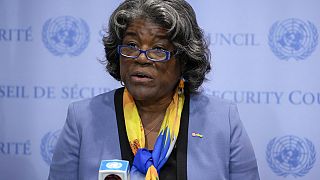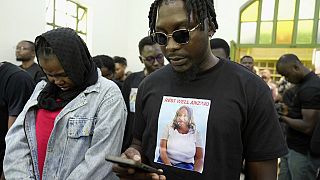Kenya
In an event that brings to light the evolving role of social media in political communication, Kenya’s President William Ruto on Friday, July 5 apologized for police brutality during an online forum with anti-tax protesters on X formerly known as Twitter.
The apology came in response to a question by Kevin Monari, a protest leader who recounted his abduction by security forces during the demonstrations two weeks ago which has claimed the lives of at least 39 Kenyans.
These protests, orchestrated via X Spaces a feature that allows users to host live audio conversations demonstrate the rising influence of digital platforms in mobilizing and amplifying public disagreement.
There is no doubt the persistent online pressure forced President Ruto to withdraw a critical finance bill, illustrating the potent impact of social media-fueled activism.
In 2020; Nigerian youth took to the streets in a deadly protest which continued for days. They were calling for the then president Muhammadu Buhari to scrap SARS, a notorious “special” police unit designated to combat armed robbery but is largely known instead for blatant extortion and in some cases, extra-judicial killings.
The anti-SARS protests just like the anti-tax protests transformed organically from online hashtags into street protests in what feels like a tipping point for a generation of young Nigerians.
This incident raises a crucial question: Is social media becoming the new battleground for political accountability? The ability for citizens to directly engage with political leaders and organize mass movements online represents a significant shift from traditional forms of protest and political engagement.
Ghana’s former president and presidential candidate for the 2024 elections, John Dramani Mahama has also announced plans to host an engagement session with journalists live on Social media.
These engagements on social media underscore how digital communication is transforming the political landscape, offering a transparent and unfiltered medium for accountability.
As more young activists, particularly from Gen Z, harness the power of social media to drive change, the dynamics of political accountability are being reshaped.














Go to video
Ties between China and Kenya "upgraded to a new level", say leaders during Ruto's state visit
Go to video
President Ruto signs $950M deal in China, strengthens Kenya–China ties
00:47
Ghana: President Mahama suspends Chief Justice Gertrude Torkornoo
Go to video
Police rescue 33 West Africans from a human trafficking scam in Ivory Coast
Go to video
Pope Francis' funeral scheduled Saturday April 26
Go to video
Al-Qaida-linked militants attack a strategic town in Somalia